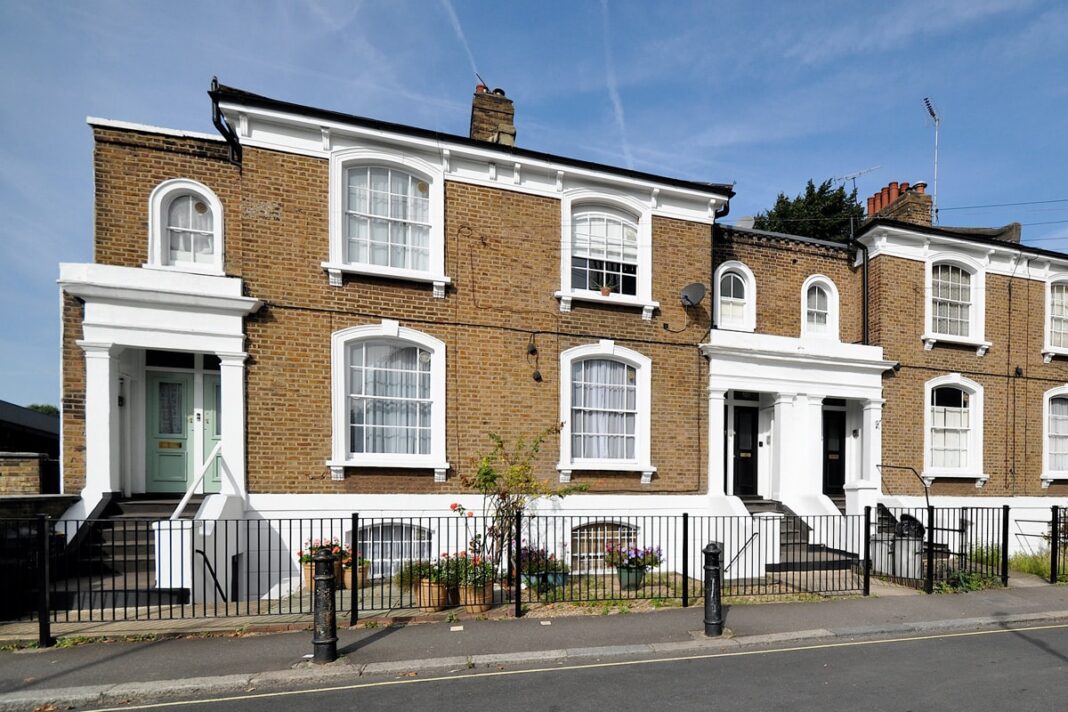“Home” means different things to different people. For some, it is a chic flat in the midst of bustling London, for others, it is a sprawling estate surrounded by more trees than people. Home for some is something they own; for others something they rent; for still others, something in which they invest. And the word itself encompasses more than just house or flat. These terms are so common that we give them little thought – but what about the flat’s humble cousin, the maisonette?
What is the meaning of maisonette? What are the pros and cons?
Maisonette Meaning
The word “maisonette” comes from the French for “petite maison,” or “small house.” It’s a little more involved than that, however. This type of housing became popular in the 1960s and 1970s, the days before blocks of flats were common in urban areas of the UK. It’s not a house and it’s not flat: think of a maisonette as a sort of hybrid between the two. It is a two-storey flat with its own exterior door. This allows owners or renters to enter and exit their own homes rather than sharing a hallway or corridor with the other residents of their block.
In the United States, this style of housing is commonly known as “duplexes.” In the UK, the term refers to self-contained flats. As mentioned, they have their own entrances, and they typically have their own staircases. Here, they are often positioned above shops, small businesses, garages or other maisonettes. You will also find them quite often in large older homes that have been converted into units.
A maisonette shares some characteristics of both a house and a flat – albeit with a few key differences.
Maisonette versus House
A maisonette may be similar in size to a smaller house, and it can deliver many of the same benefits. Privacy, for one, as they have their own entrances. One could also argue that this makes them safer than a flat (though that depends on a variety of factors). They look like a house from the outside and may offer a garden or even a garage. However, the garden may be shared with neighbours, and you will likely have to access it through a side gate or rear entrance rather than just opening up your patio doors like you could with a house.
Maisonette vs. Flat
Some people use the terms “maisonette” and “flat” interchangeably. But there are many differences. One of the biggest is the space and layout. Flats usually have several rooms on one level, whereas a maisonette has two storeys (and sometimes three). With a separate entrance, you do not share a communal corridor and you likely have more access to outside space.
Pros and Cons of Living In a Maisonette
Pros:
- Privacy. Compared to a flat, you will enjoy greater privacy given the separate entrance. It’s also quieter in a maisonette as you don’t have to hear your neighbours clamouring all over the place at all hours or plodding down the hallway.
- Garden and garage. While not a standard feature, many maisonettes do feature these amenities, which can greatly enhance your living situation and allow for more personalisation of your space.
- Affordability. Compared to a house, a maisonette will be less expensive. Interestingly, they are often less expensive than flats too (to the tune of 20 – 25% cheaper for the amount of square footage). This can make living in pricier areas a bit more manageable for many people, including students. This is why you will often find maisonettes more common in locations with universities and colleges.
Cons:
- Difficulty expanding. If you want to expand a house, you can benefit from Permitted Development Rights. Maisonettes don’t fall under this category so getting planning permission for large home improvement projects can be difficult.
- Leasehold. Most maisonettes are leasehold, so you need permission from the freeholder to make changes or apply for planning permission. Also, depending on how many years are left on the leasehold, it can make the maisonette harder to sell.
- Exterior work. If there needs to be work done on the maisonette’s exterior and someone else owns the other half of the property, you may require their help. Financially speaking, the cost is allocated from the start.
- Noise. While more private than a flat in most cases, you will still have neighbours in relatively close proximity, so you need to be aware of noise levels. If you live above a business, for example, you may have people coming in all hours of the day. If you work evenings or nights and catch sleep in the day – or if you work from home and need quiet – just be aware of the situation before you decide.
Maisonettes can be a great solution for those seeking the benefits of a house and a flat and are willing to make a few compromises along the way.















